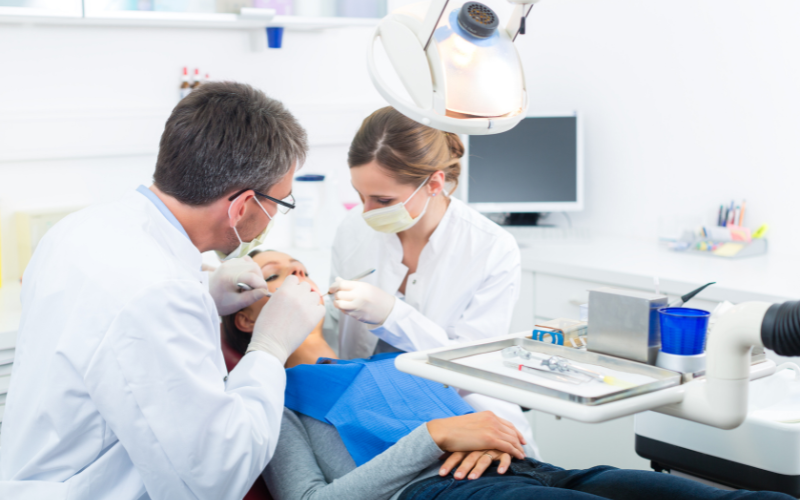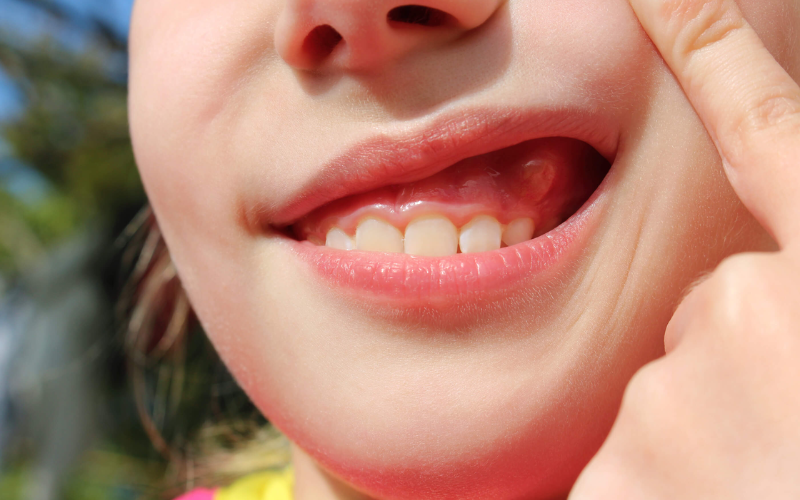Spokane Valley:
(509) 228-3834

How To Save A Tooth: Dental Emergency First Aid Tips
Dental emergencies can be alarming and often happen when we least expect them. Whether it’s a sudden injury, a severe toothache, or a knocked-out tooth, knowing how to respond quickly can make a significant difference in saving your tooth and ensuring your dental health.
This guide outlines essential first-aid tips for several dental emergencies, helping you act swiftly and effectively.
Common Dental Emergencies
Understanding the types of dental emergencies you might encounter is the first step in knowing how to respond. Here are a few typical scenarios:
- Avulsed or knocked-out tooth
- This can occur due to sports injuries, falls, or accidents.
- Cracked or Chipped Tooth
- Often caused by biting down on hard objects or trauma to the mouth.
- Severe Toothache
- A symptom of tooth decay, infection, or gum disease.
- Lost Filling or Crown
- This can expose the tooth to further damage or infection.
- Abscessed Tooth
- A painful condition where a pocket of pus forms due to infection.
First Aid Tips for Each Emergency
1. Knocked-Out Tooth
Immediate Actions:
- Stay Calm: Panic can lead to poor decision-making.
- Find the Tooth: Look for the tooth and handle it by the crown (top) only, avoiding touching the root.
- Rinse Gently: If the tooth is dirty, rinse it briefly with milk or saline. Avoid soap or tap water.
- Reinsert the Tooth: If possible, try to gently place the tooth back into its socket. Bite down on a piece of gauze to keep it in place.
- Keep It Moist: If you can’t reinsert the tooth, place it in a container with milk or a saline solution. Avoid using water.
Seek Dental Care:
- Visit a dentist within 30 minutes to increase the chances of saving the tooth.
2. Cracked or Chipped Tooth
Immediate Actions:
- Rinse Your Mouth: Use warm water to clean your mouth.
- Control Bleeding: Use gauze or a clean towel to gently press on any bleeding.
- Take Pain Relief: Over-the-counter pain relievers can help alleviate discomfort.
Seek Dental Care:
- Contact your dentist as soon as possible to evaluate the damage and determine the appropriate treatment.
3. Severe Toothache
Immediate Actions:
- Rinse with Warm Salt Water: This can help reduce inflammation and kill bacteria.
- Floss Gently: Remove any food particles or debris stuck between your teeth.
- Apply a Cold Compress: Place it on the outside of your cheek to reduce swelling.
Seek Dental Care:
- Schedule an appointment with your dentist to diagnose the underlying issue, which may require treatment such as a filling or root canal.
4. Lost Filling or Crown
Immediate Actions:
- Find the Filling or Crown: If you locate it, rinse it to clean it.
- Temporary Fix: If you’re unable to get to the dentist immediately, use dental cement, available at pharmacies, to temporarily secure the crown or filling.
Seek Dental Care:
- Make an appointment with your dentist as soon as possible to discuss permanent solutions.
5. Abscessed Tooth
Immediate Actions:
- Rinse with Salt Water: This can help reduce swelling and promote drainage.
- Pain Relief: Use over-the-counter pain medications as needed.
- Avoid Squeezing: Do not attempt to pop or squeeze the abscess.
Seek Dental Care:
- Contact your dentist immediately, as an abscess often requires professional treatment, which may include drainage and antibiotics.
General Tips for Dental Emergencies
- Stay Calm: Keeping a level head helps you think clearly and take the right actions.
- Know Your Dentist’s Contact Information: Have your dentist’s number saved on your phone for quick access.
- Keep Emergency Kits Ready: Include items like gauze, dental cement, and saline solution at home for quick response.
- Educate Your Family: Make sure everyone knows what to do in a dental emergency.
When To Visit The Emergency Room?
Some dental emergencies may require immediate medical attention. Visit the emergency room if you experience:
- Severe swelling in the face or neck.
- Uncontrolled bleeding that doesn’t stop.
- Signs of a serious infection, such as fever or difficulty swallowing.
Being prepared for dental emergencies can make a significant difference in saving a tooth and maintaining your oral health. By understanding common emergencies and knowing how to respond quickly and effectively, you can protect your smile from further damage.
Always seek professional dental care when needed, and don’t hesitate to reach out to your dentist in case of any dental issues. Your oral health is essential, and prompt action can help ensure a beautiful & smiley me.




